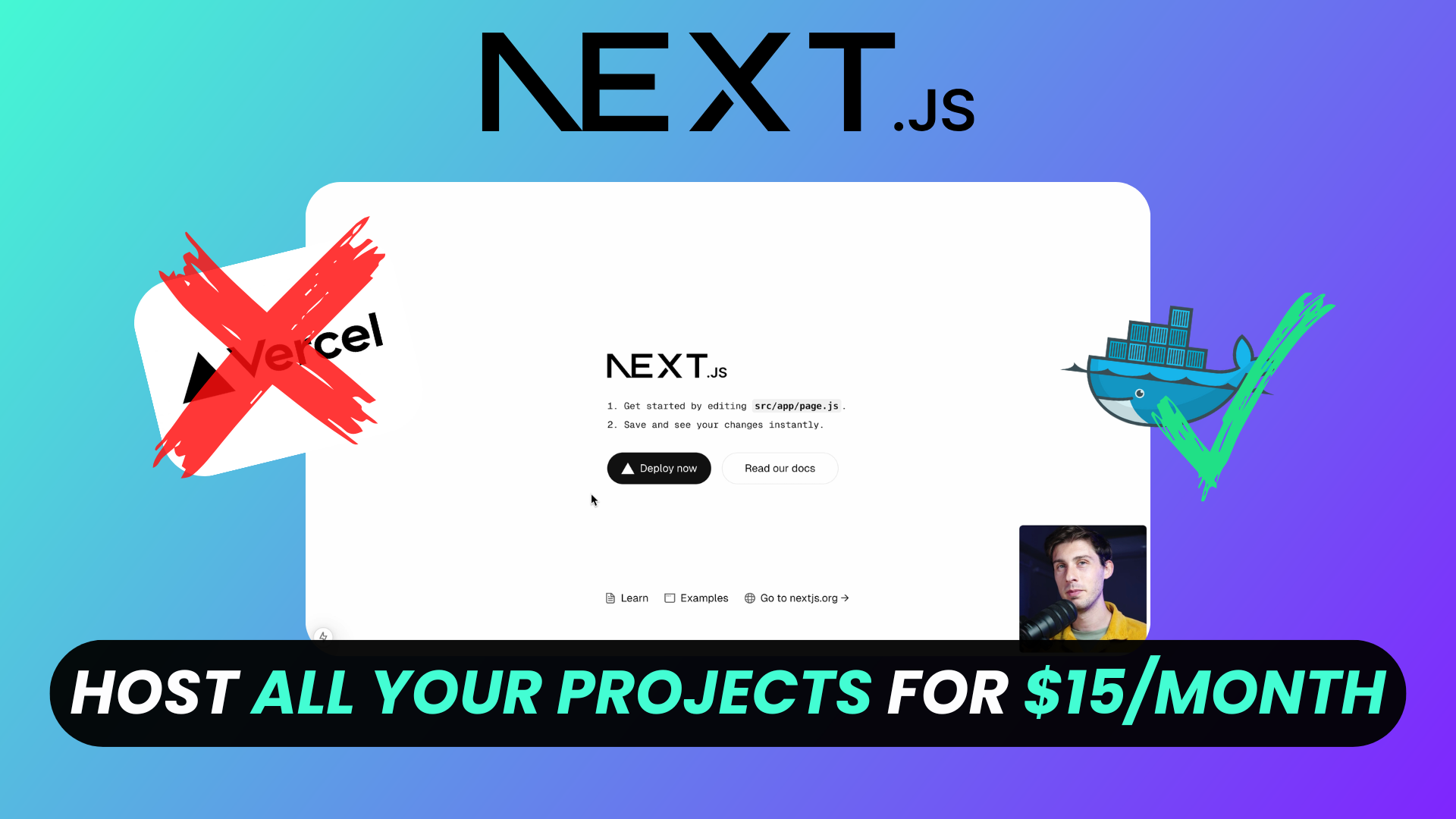Step-by-Step Guide to Self-Hosting Next.js Apps

Next.js has become one of the most popular frameworks for building modern web applications due to its performance, flexibility, and built-in features like SSR/SSG and API routes.
While platforms like Vercel make deployment effortless, some developers prefer self-hosting for greater control, customization, or cost savings.
In this guide, we’ll explore how to self-host a Next.js app and unlock its full potential.
Watch our video guide on our YouTube channel
Vercel
Vercel is the official hosting platform for Next.js, offering seamless deployments with minimal configuration. It supports automatic builds, custom domains, and serverless functions. However, as projects grow, Vercel's pricing and limitations may prompt developers to consider self-hosting for:
- Greater Customization: Full access to server configurations.
- Lower Costs: Avoiding premium hosting fees.
- Data Control: Hosting sensitive data on your infrastructure.
Next.js Self-Hosting
To self-host a Next.js app you can follow their building, and deployment guides available in their documentation.
Deploy with Elestio
Looking for a simplified way to self-host? Elestio offers managed deployments with just a few clicks. Check out our full YouTube guide on deploying a Next.js app with Elestio.
Conclusion
Self-hosting a Next.js app gives you complete control, better scalability, and reduced hosting costs. Whether you choose to manage everything yourself or use platforms like Elestio for easy deployment, self-hosting ensures your web applications stay flexible and future-proof.
Take control of your Next.js projects today! 🚀

